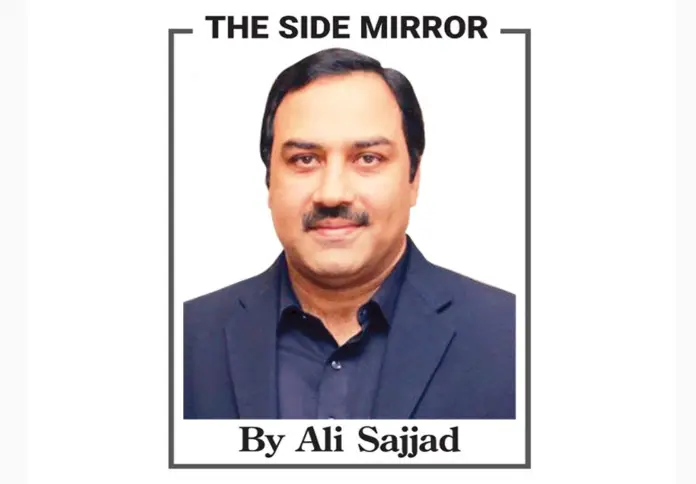The live broadcast of Nawaz Sharif’s address to the Chamber of Commerce and Industry in Sialkot and his party’s workers was the finest hours in the history of Pakistan. Every word Mian Nawaz Sharif, the leader of the Muslim League-N and a three-time elected prime minister, said shed light on a dark aspect of our national history.
It was not a written speech. Nor he was taking the help of notes. He spoke every single word from his heart. One could feel the emotional waves coming out of his words.
Though most of the things he said were in public knowledge, but his words have become more relevant in the preset times.
For example, he spent a good deal of time of expressing his concern over the repeated overthrowing of elected governments by undemocratic forces. Though he did not name anyone, it was enough to highlight the challenges the governments have faced due to immature departure of prime minister, and the ensuing crises faced by successive governments in the last four decades.
Since 1988, I have seen the dismissal of several governments. Some dismissals brought celebrations and some deep sorrows. But at the end of day, now I feel these dismissals were unfortunate.
Nawaz Sharif should have been candid to mention all the prime ministers removed in the past. He, however, focused on his removal from the prime minister’s post in 2017, questioning the reasons behind his ousting when the country was progressing under his leadership. He pointed to a conspiracy involving the military leadership and judiciary, raising concerns about the need for his government’s dismissal. He questioned why the judges at that time made decisions against his government, emphasizing the injustice in his removal.
Reflecting on the 2018 elections, Nawaz Sharif criticised the interference of state institutions, alleging manipulation of results and suspension of the Results Transmission System (RTS) to favor certain individuals. He expressed dissatisfaction with the outcome, stating, “He came. It was not brought. Such a servant was brought who only likes to abuse, and those who brought him are equally responsible.”
Discussing the overthrow of his second government by General Musharraf, Nawaz Sharif recounted the unjust treatment he faced. He highlighted the attempts to falsely implicate him in serious charges and questioned the continuous changing of prime ministers, emphasizing the need for political stability.
In his address, Nawaz Sharif urged the nation to learn from past mistakes, asserting that the responsibility lies with the people to hold leaders accountable. He vowed to work towards the prosperity of the people, emphasizing the need for unity in addressing the country’s challenges.
Nawaz Sharif addressed the business community and the nation at large, pledging to fight together to overcome the country’s problems. He committed to leading the nation out of darkness and onto the path of development, promising relief from inflation and poverty. He called for courageous decisions to improve the country’s economy, stressing the collective responsibility to secure a brighter future.
The speech underscored a national tragedy: the recurring overthrow of elected governments, leading to political and economic instability. Nawaz Sharif called for a commitment to the constitution, transparent electoral processes, and accountability for those involved in conspiracies. He urged the judiciary to rectify any mistakes and ensure the supremacy of the constitution for sustained political and democratic stability.
History will remember Nawaz Sharif for his candid talk. There is crucial need for security, justice, and adherence to constitutional principles to fulfill the dream of national development and prosperity. The challenges faced by elected governments should be addressed collectively by political leadership and state institutions to pave the way for a stable and prosperous Pakistan.







